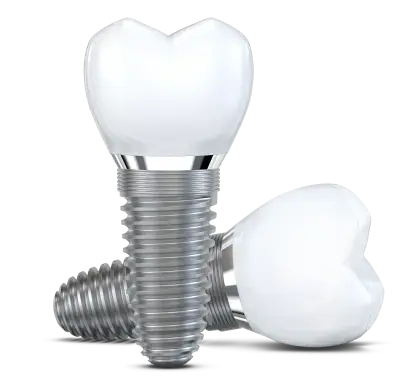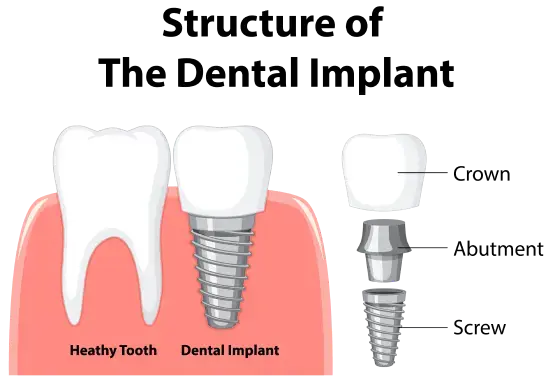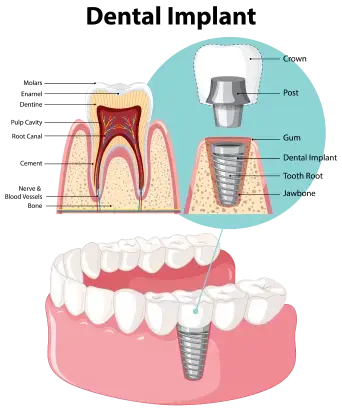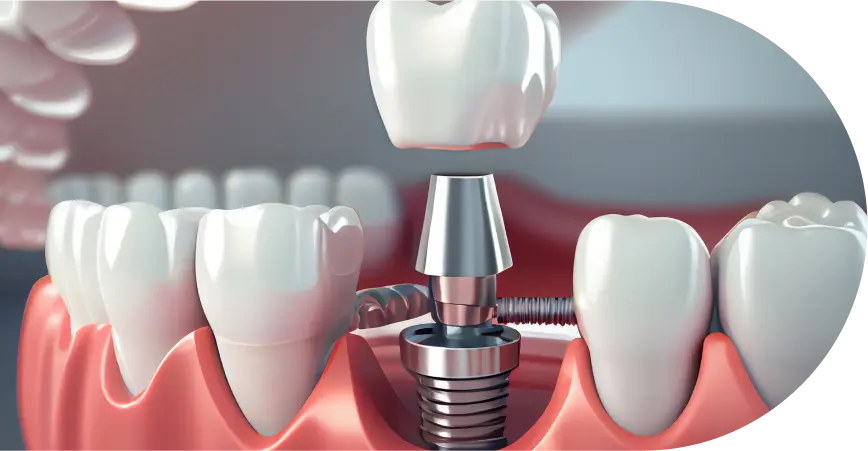
Dental implants are artificial tooth roots made of titanium, providing a permanent base for fixed or removable replacement teeth. They offer a strong foundation, mimicking natural teeth in function and appearance. The procedure involves placing the implant into the jawbone, where it fuses over time. Dental implants improve oral health, enhance aesthetics, and restore chewing and speaking abilities, making them a popular solution for missing teeth.





The average lifespan of a dental implant is anywhere from 10 -30 years. This means that most likely, depending on your age when you get an implant, it will last for the rest of your life.
The three most common types of dental implants are endosteal, subperiosteal, and zygomatic. Endosteal is the most common and safe method.
The surgery takes place in three stages : Placement of the implant and Attaching the abutment and Fitting the crown.
Infection at the implant site. Injury or damage to surrounding structures, such as other teeth or blood vessels. Nerve damage, which can cause pain, numbness or tingling in your natural teeth, gums, lips or chin.